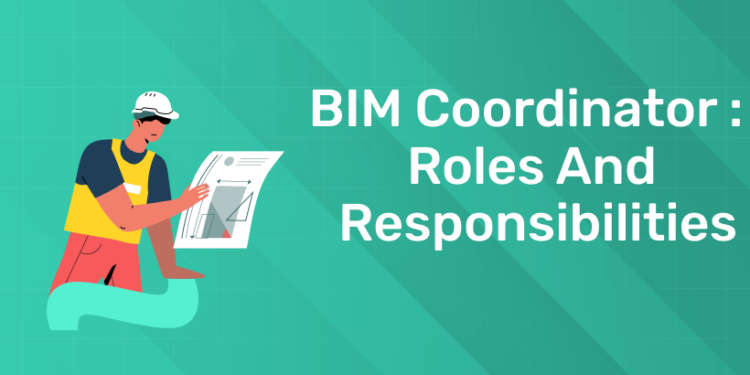Table of Contents
The world of construction and architecture has been transformed by technology, and Building Information Modeling (BIM) is at the forefront of this revolution. Within this dynamic landscape, the role of a BIM Coordinator has emerged as pivotal. But what exactly does a BIM Coordinator do? What skills are essential for this role, and how do they fit into the broader framework of a construction or design project? This blog dives deep into the intricacies of this profession, exploring the responsibilities, strategic importance, and qualifications required to excel in the field.
Imagine a conductor orchestrating a symphony of architects, engineers, and construction professionals, all collaborating to create a masterpiece. The BIM Coordinator is that conductor, ensuring harmony, efficiency, and precision in the digital construction process. This role isn’t merely about software and technicalities—it’s about connecting people, processes, and technology.
Become a BIM Coordinator with Entri’s best course. Enroll Now!
BIM Coordinator: Core Responsibilities
The daily responsibilities of a BIM Coordinator are varied and intricate, demanding both technical expertise and exceptional organizational skills. Let’s break down the core aspects of their role:
- Model Management:
- A BIM Coordinator oversees the development, maintenance, and integration of digital models.
- Ensuring that models align with project specifications and standards is a critical task.
- They perform regular audits to identify errors or inconsistencies, maintaining the integrity of the model throughout the project lifecycle.
- Coordination Across Disciplines:
- Collaboration is at the heart of the BIM Coordinator’s role. They act as a bridge between architects, engineers, contractors, and other stakeholders.
- By facilitating communication, they ensure that everyone is working with the most up-to-date information and models.
- Managing clash detection and resolving conflicts between different disciplines is another significant responsibility.
- Standard Implementation:
- BIM Coordinators are responsible for enforcing compliance with industry standards and project-specific guidelines.
- They create and update BIM execution plans, ensuring clarity and consistency across the project team.
- Software Mastery:
- Expertise in BIM software such as Revit, Navisworks, and AutoCAD is essential.
- They train team members to use these tools effectively and stay updated on the latest advancements.
- Documentation and Reporting:
- Documenting workflows, decisions, and processes is an integral part of the role.
- They produce detailed reports, ensuring stakeholders have a clear understanding of the project’s progress and challenges.
BIM Coordinator: Strategic Roles
Beyond day-to-day tasks, the BIM Coordinator plays a strategic role in shaping project outcomes and driving innovation. Here’s how:
- Driving Efficiency:
- By streamlining workflows and automating repetitive tasks, BIM Coordinators enhance productivity and reduce errors.
- They identify bottlenecks and implement solutions to keep projects on track.
- Promoting Collaboration:
- Modern construction projects are increasingly collaborative, often involving teams spread across multiple locations.
- A BIM Coordinator ensures that everyone remains connected and aligned, fostering a culture of cooperation.
- Facilitating Decision-Making:
- With access to comprehensive, data-rich models, BIM Coordinators provide valuable insights to support decision-making.
- They help stakeholders visualize outcomes, assess risks, and make informed choices.
- Innovation and Technology Adoption:
- Staying at the forefront of technological advancements, BIM Coordinators drive the adoption of new tools and methodologies.
- They champion the integration of sustainable practices and smart technologies into the BIM process.
BIM Coordinator: Skills and Qualifications
To excel as a BIM Coordinator, one needs a blend of technical prowess, soft skills, and industry knowledge. Let’s delve into the essential attributes:
- Technical Skills:
- Proficiency in BIM tools like Revit, Navisworks, and Dynamo.
- Understanding of 3D modeling, clash detection, and model integration.
- Familiarity with construction processes and architectural principles.
- Analytical Thinking:
- The ability to analyze complex data and identify patterns is crucial.
- BIM Coordinators need to anticipate challenges and devise effective solutions.
- Communication Skills:
- Effective communication is key to collaborating with diverse teams.
- The ability to explain technical concepts in simple terms is an asset.
- Project Management:
- Strong organizational skills and attention to detail are essential for managing multiple tasks and deadlines.
- Experience with project management methodologies can be highly beneficial.
- Adaptability:
- The construction industry is dynamic, and BIM Coordinators must adapt to changing requirements and technologies.
- A willingness to learn and grow is a hallmark of successful professionals in this field.
- Educational Background:
- A degree in architecture, engineering, construction management, or a related field is often required.
-
Certifications such as Autodesk Certified Professional can enhance career prospects.Become a BIM Coordinator with Entri’s best course. Enroll Now!
Conclusion
The role of a BIM Coordinator is both challenging and rewarding, offering a unique blend of technical, strategic, and interpersonal opportunities. By bridging the gap between technology and teamwork, they ensure that construction projects are efficient, innovative, and successful.
If you’re inspired to embark on a career as a BIM Coordinator or looking to enhance your skills, consider exploring courses and resources that provide hands-on training in BIM software and methodologies. Companies like Entri offer specialized programs tailored to industry demands, helping professionals stay ahead in the competitive landscape.
Stay curious, embrace technology, and you could be the next visionary shaping the future of construction through BIM.
Master BIM and Elevate Your Career – Enroll Today!
Stay ahead in the construction and design industry with our comprehensive BIM Course! Learn Building Information Modeling (BIM) from experts, gain hands-on experience with top software, and boost your career prospects. Join now and become a certified BIM professional!
Know MoreFrequently Asked Questions
What skills are required for a BIM Coordinator?
- Technical Skills: Proficiency in BIM software (Revit, Navisworks, etc.), strong understanding of 3D modeling principles, knowledge of construction drawings and standards.
- Soft Skills: Excellent communication, interpersonal, and leadership skills. Strong problem-solving and decision-making abilities. Ability to work effectively in a team environment. Strong organizational and time-management skills
What is the typical career path for a BIM Coordinator?
- Entry-Level: Often start as a BIM Technician or Modeler and progress to a BIM Coordinator role with experience.
- Advancement: Opportunities for career advancement include Senior BIM Coordinator, BIM Manager, and other leadership positions within the BIM field.
What educational background is typically required for a BIM Coordinator?
- Education: A degree in architecture, engineering, construction management, or a related field is often preferred.
- Certifications: Industry-recognized certifications (e.g., Autodesk Certified Professional) can enhance career prospects.











